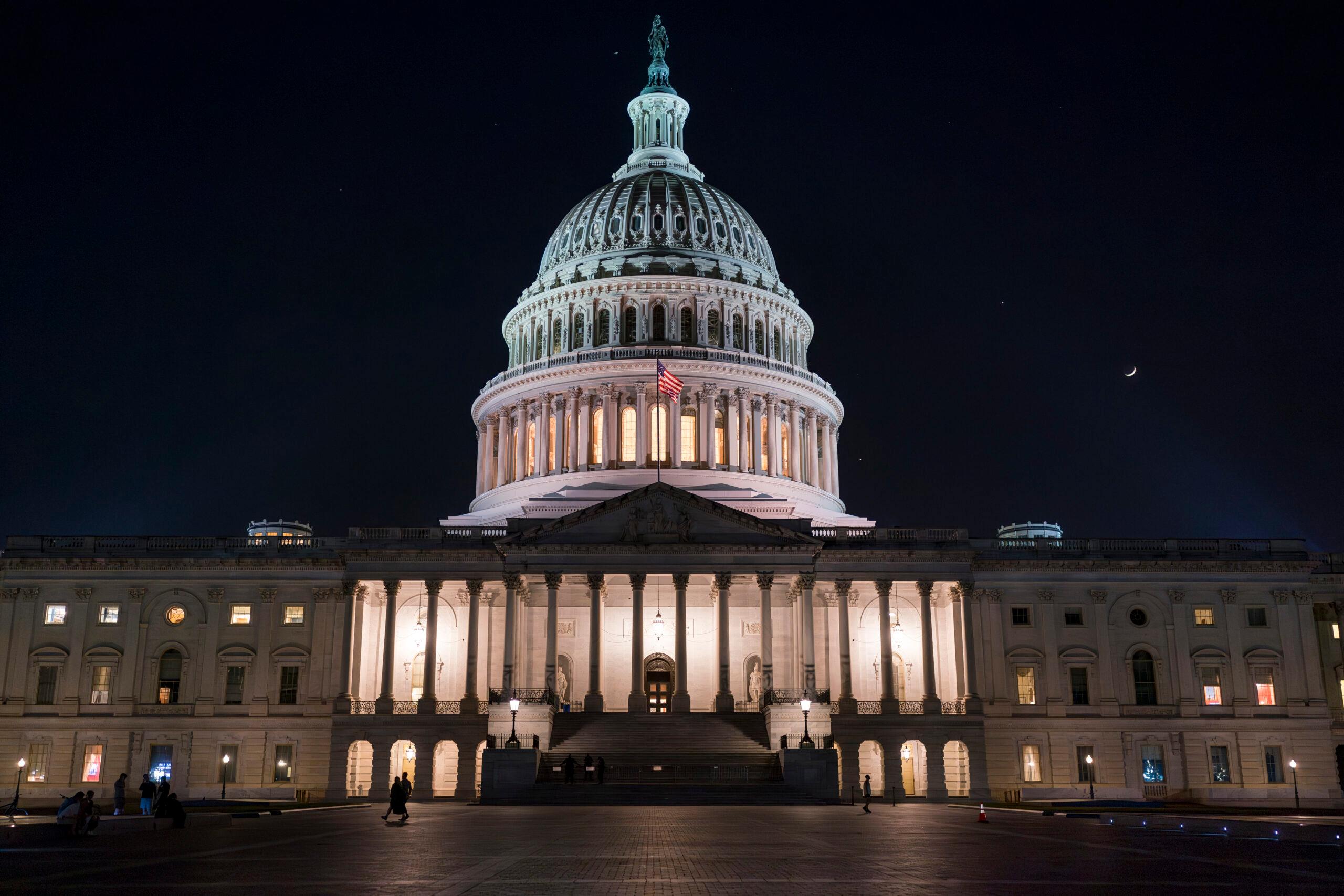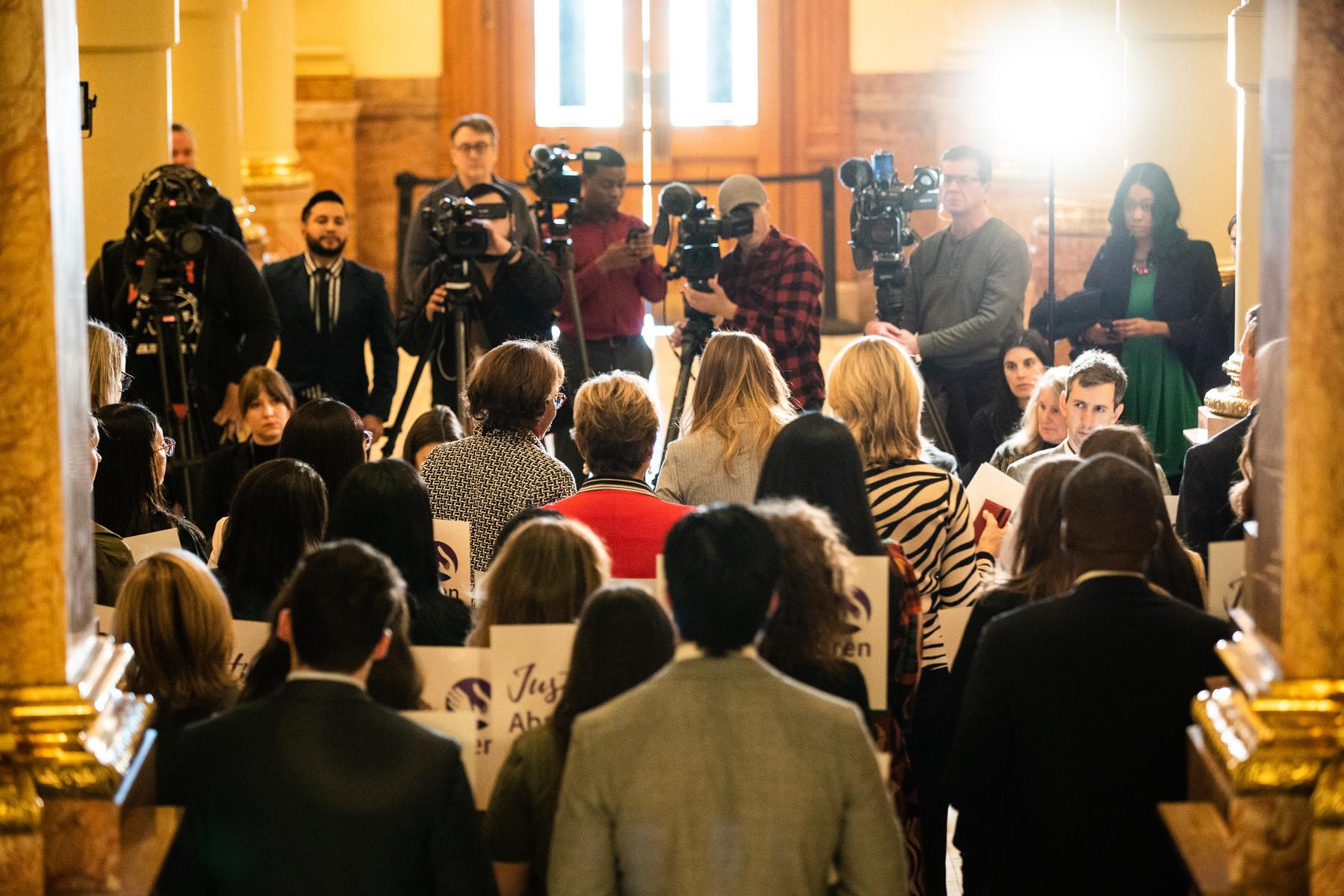
“At the end of the day, I think that if both sides of a negotiating party are a little bit unhappy, then that means that as good of a deal as can be reached has been struck,” said Democratic Rep. Yadira Caraveo, explaining her vote to lift the debt ceiling to constituents on a telephone town hall Tuesday.
The dissatisfaction many House members had with the final compromise brokered by President Joe Biden and Speaker Kevin McCarthy didn’t stop a majority of representatives on both sides of the aisle from voting to suspend the debt ceiling until Jan 1, 2025, in exchange for federal spending caps for the next two years.
The House passed the bipartisan compromise 314 to 117, sending it to the Senate, where leaders say they're working to pass the bill before the June 5th default date.
Caraveo said there were plenty of things to be unhappy about in the bill, but that voting for it was the responsible thing to do to “avoid economic catastrophe.”
Republican Ken Buck voted no, while fellow Republican Lauren Boebert did not cast a vote at the Wednesday evening vote, after saying for days she’d vote no on the bill. Axios reported seeing Boebert running up the steps as the vote closed. CPR News reached out for comment and received no response.
Buck and Boebert both signaled they’d vote against the bill shortly after the agreement was announced.
Meanwhile Republican Congressman Doug Lamborn was a late decision, but voted yes to the measure in the end.
“Instead of bemoaning the fact that the deal did not go as far as it could have, which is always the case with major legislation, I voted to cut federal spending and lock in the reforms that the deal did achieve,” said Congressman Lamborn in a statement.
“This bill will lock in defense spending numbers for the next two years, take back $28 billion in unspent COVID funds, and streamline energy and infrastructure projects. Through this bill, we continue to take care of our seniors by fully funding Medicare and Social Security, force federal agencies to balance their spending, and stop Biden tax increases,” he said.
The Colorado Republican Party sent out a message to members, pressuring Lamborn to vote down the compromise.
Buck, who represents the Eastern Plains, has never voted to raise the debt ceiling, currently capped at $31.4 trillion. He said there were 4 trillion reasons not to support this bill.
“How do you keep a country moving when we’ve got $35 trillion dollars of debt?” Buck said.
Buck said he heard from people in his district over the Memorial Day weekend who agreed with his stance against the bill.
“Those people were mad,” he said. “And again, inside the Beltway doesn’t get it. You can’t keep going with this debt. People out there get it. Republicans, Democrats, they get it.”
Boebert joined other members of the House Freedom Caucus to pan the bill on Tuesday, saying it was full of “gimmicks.”
On the other side of the aisle, Reps. Diana DeGette, Joe Neguse, Jason Crow, Brittany Petterson and Yadira Caraveo all voted yes.
DeGette said there were things in the bill she “definitely didn’t like,” but it was about doing the fiscally responsible thing.
“Ultimately, we have a divided government. And when you have a divided government and when you’re talking about going off a fiscal cliff, you have to have a negotiated settlement,” she said after the vote. “I was frankly shocked at how many concessions the Republicans made.”
This was freshman Democratic Rep. Brittany Pettersen’s first debt limit fight. She admitted she’s frustrated by the dysfunction in D.C. Still, she voted for the bill “because I believe in governing.”
“I think that people back in Colorado and in the 7th congressional district care about making sure that we have a functioning government, that we're not holding our economy hostage playing partisan games,” she said.
In a break with norms, Caraveo and Pettersen joined 50 other centrist Democrats to pass a GOP rule that governs debate of a bill, after more than 20 Republicans — including Boebert and Buck — voted against the GOP rule. Usually rules are passed on party line votes.
Democratic Rep. Jason Crow said it boiled down to one thing: He wasn’t willing to let the U.S. default on the debt, which would cost taxpayers.
“Every Coloradan knows that if you don't pay your bills, you get charged extra. Your interest rates go up. You get fees, you get penalties,” he said. “The U.S. government is no different.”
Like many lawmakers on both sides of the aisle, Crow agrees the U.S. needs to deal with the deficit, but added, “blowing up the House and defaulting on our debt and using that as a political pawn is the wrong way to do it.
Pettersen agreed, saying more attention needs to be given to revenue sources.
“That is something that has to be part of the conversation if we're going to actually bring long term solutions,” she said.
Petterson’s amendment to return the income tax rate for millionaires back up to 39.6 percent was not brought to the floor, along with 70 others, including several offered by Boebert.
Buck added that cuts to mandatory spending would also need to be part of the solution. “At some point we’ll come together and agree that all these things have to be on the table in order to get the country where it’s fiscally sound,” he said.
According to the Congressional Budget office, the bill will reduce the deficit by $1.5 trillion and save $188 billion in interest. It also found that proposed cuts to the IRS would increase the deficit by $900 million over 10 years.
The bill now heads to the Senate, where both Democratic Leader Chuck Schumer and Republican Leader Mitch McConnell said they support the compromise measure and will work to pass the bill before the default deadline of June 5.









